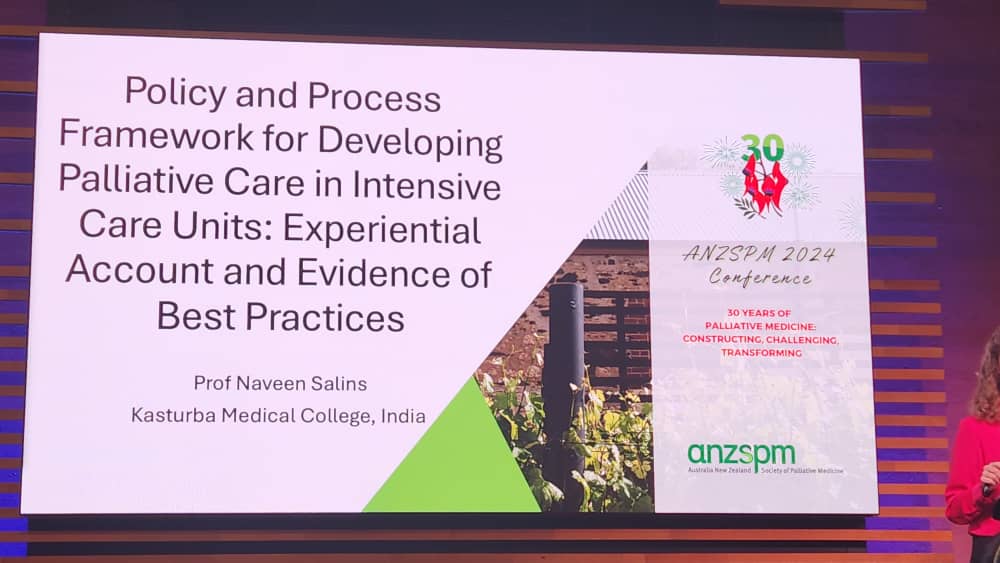Australia New Zealand Society of Palliative Medicine (ANZSPM) Conference 2024 was a homecoming experience as I trained at Adelaide. Returning as a plenary speaker and meeting my teachers and peers was delightful. The last ANZSPM that I attended was in 2008 at Darwin as a final-year palliative care trainee.
Australia Palliative Care Link International (APLI) conducted a pre-conference workshop on perspectives on palliative care referral. I made a 45-minute presentation on upstreaming palliative care, explicitly focusing on how stakeholders’ views impact upstreaming. It was well received and elicited exciting discussions after my presentation. Moreover, several attendees of this pre-conference workshop also met me during the conference and discussed their challenges in upstreaming.

During the conference, I gave a plenary talk on Policy and Process Framework for Developing Palliative Care in Intensive Care Units: Experiential Account and Evidence of Best Practices. Again, it was well received as it is a relatively newer concept in Oceania. Post-plenary, several attendees met me, and they were impressed with the body of work in ICU palliative care and were keen to explore areas of synergy and collaboration.
The conference commenced by highlighting the “beginnings of palliative care”, how these beginnings were challenging and how these challenges were converted into opportunities. Mary Brooksbank’s oration and Eduardo Burera’s plenary set the tone for this conference, reminding us of the beginnings. It was cemented by an interesting session called Honouring Our Past and Looking into the Future, in which all the previous ANZSPM presidents spoke about their journey and contributions to the region’s palliative care development. Although these represented the development in the Oceania countries, it resonates well with many parts of the world.
The highlight of this conference was that concurrent sessions (two out of three) were reserved for proffered papers. The advantage of this approach is that it provides a forum for the palliative care researcher to present their work, disseminate it, seek collaborations and expand it. It gave opportunities to palliative care doctors in training and young consultants to get centre stage in the conference. These proffered papers were thematically placed, enabling the attendees to choose the concurrent session they preferred.
Another highlight of this conference was the focus on specific unique themes often unaddressed in other conferences, like social justice, societal deprivation and depravation, homelessness, unserved communities, humanitarian crises and wars. It brought out the social dimension of palliative care, shifting it away from excessively focused medical palliative care. The conference also had sufficient representation of the needs of the first (aboriginal) communities in Australia and New Zealand, acknowledging the palliative care needs of the marginalised and vulnerable and the moral imperative to address them.
Although it was a physician’s conference, the speakers were from diverse backgrounds, including ambulance service providers, policymakers and educationists. The evenings of conference day were conducted meaningfully at the South Australian Museum and Adelaide Zoo, fostering opportunities for catching up, networking and collaboration.
Written by Prof Naveen Salins, Cynthia Goh Palliative Care Fellow
